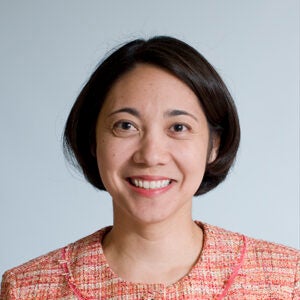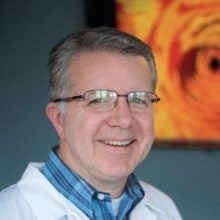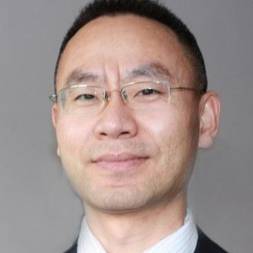Edward Briercheck earned his B.S. in Biology at the University of Toledo. He earned his MD and PhD at The Ohio State University where he joined Michael Caligiuri’s lab investigating mechanisms of human natural killer cell biology. He then did his internal medicine residency in the global health equity pathway Boston Medical Center. After residency he was Fulbright Scholar to Guatemala at the Instituto de Cancerología y Hospital Dr. Bernardo…
Barbra Dickerman, PhD
Barbra Dickerman’s research is focused on using methods in causal inference and machine learning and the vast amount of information available in health care to improve and personalize cancer control. She is the co-director of the VA-CAUSAL Methods Core, an initiative of the U.S. Veterans Health Administration to integrate high-quality data and explicitly causal methodologies in a nationwide learning health system. Barbra teaches causal inference methodology within the Department of…
Lecia Sequist, MD, MPH
Lecia Sequist studied chemistry at Cornell University, received her MD from Harvard Medical School and trained in internal medicine at the Brigham and Women’s Hospital and in hematology/oncology at the Dana-Farber Cancer Institute, where she also received an MPH from the Harvard School of Public Health. She joined the faculty at the Massachusetts General Hospital Cancer Center in 2005 and has an active clinical and translational research career, as well…
Konrad Stopsack, MD
Dr. Konrad Stopsack is a molecular and clinical epidemiologist with a focus on cancer epidemiology and a background as a board-certified internal medicine physician. His main research interest is how potentially modifiable exposures cause solid tumors through genomic heterogeneity and influence cancer progression, and combining well-defined observational studies and state-of-the-art genomics in order to guide cancer prevention and treatment. His methodologic and teaching interests include application and further development of…
Sapna Syngal, MD, MPH
Dr. Sapna Syngal received her MD from McGill University in 1990 and completed her clinical training in Internal Medicine and Gastroenterology at Brigham and Women’s Hospital. She received her MPH from Harvard School of Public Health and completed a research fellowship at the Harvard Education Program in Cancer Prevention. She joined DFCI in 1995. As a Zhu Center Senior Fellow and DF/HCC Incubator Award winner, Dr. Syngal focuses her work…
Guillermo Tearney MD, PhD
Dr. Guillermo (Gary) Tearney is the Remondi Family Endowed MGH Research Institute Chair, Professor of Pathology at Harvard Medical School, an Affiliated Faculty member of the Harvard-MIT Division of Health Sciences and Technology (HST) and maintains his lab at the Wellman Center for Photomedicine at the Massachusetts General Hospital. Prof. Tearney received his MD magna cum laude from Harvard Medical School and received his PhD in Electrical Engineering and Computer…
Xuehong Zhang MD, ScD
Dr. Xuehong (Hong) Zhang is a cancer epidemiologist with medical training. He has over ten years experience in conducting cohort and case-control studies and international consortia. He integrates epidemiology, nutrition/lifestyles, pathology, and –omic techniques to conduct multidisciplinary investigations. The overall theme of his research program is to identify dietary, lifestyle, genetic, and biological determinants of cancer, especially those of colorectum and liver, as well as determine whether these factors influence…







